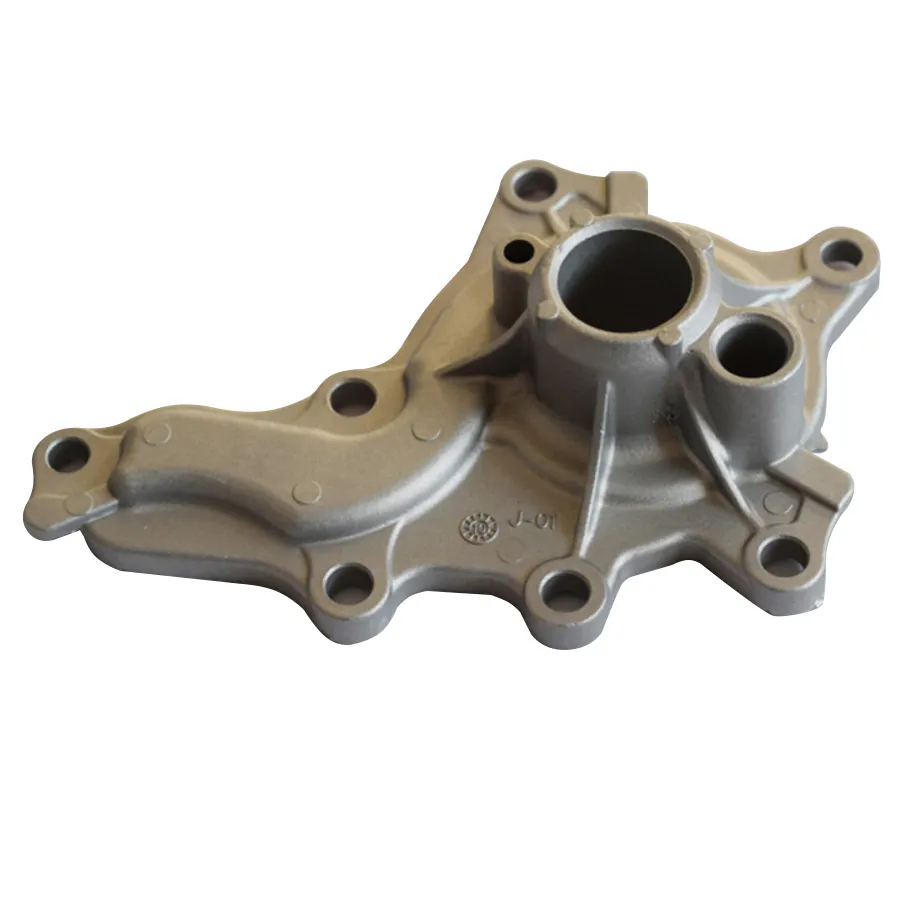Mobile:+86-311-808-126-83
Email:info@ydcastings.com
Design and Performance of Centrifugal Monoblock Pump Impellers for Efficient Fluid Transfer
Understanding Monoblock Pump Impellers A Comprehensive Overview
Monoblock pump impellers are critical components in the operation of various types of pumps, playing a pivotal role in their efficiency and performance. As the name suggests, a monoblock pump integrates the pump casing and the electric motor into a single unit. This design philosophy not only simplifies installation and maintenance but also enhances the overall efficiency of the pumping system. In this article, we will delve into the features, benefits, and applications of monoblock pump impellers, shedding light on why they are favored in numerous industries.
What is a Monoblock Pump Impeller?
The impeller in a monoblock pump is a rotating component designed to convert electrical energy into kinetic energy and pressure energy in the fluid. It typically consists of a rigid body with blades or vanes that impart energy to the fluid, propelling it through the pump. In monoblock pumps, the impeller and the motor are configured to work as a single cohesive unit, which provides significant operational advantages.
Key Features of Monoblock Pump Impellers
1. Compact Design The monoblock configuration minimizes space requirements, making these pumps ideal for installations with limited space. Their compact design also facilitates easier transport and installation.
2. High Efficiency Monoblock pumps tend to operate with higher efficiency compared to traditional pump configurations. This is largely due to the direct connection between the motor and the impeller, which reduces energy losses that can occur in separate configurations.
3. Versatile Applications Monoblock pump impellers are versatile and can be used in a wide range of applications, including water supply, irrigation, chemical processing, and HVAC systems. Their adaptability makes them suitable for both domestic and industrial settings.
4. Simplified Maintenance With fewer components than traditional pumps, monoblock units are easier to maintain. Accessibility to the impeller and motor for servicing is significantly improved, leading to reduced downtime.
5. Durability and Reliability Built with high-quality materials, monoblock pump impellers are designed to withstand demanding conditions. Their robust construction ensures longevity and reliable performance, even in challenging environments.
Benefits of Monoblock Pump Impellers
The integration of the impeller within the monoblock design offers several benefits
monoblock pump impeller

- Cost Efficiency The compactness and efficiency of monoblock pumps lead to energy savings, which can translate into lower operational costs over time. Their design also reduces the need for additional piping and fittings, further decreasing installation costs.
- Reduced Vibration and Noise The monoblock design minimizes the vibrations typically associated with pump operation. This not only enhances the comfort of the surrounding environment but also prolongs the lifespan of both the pump and connected components.
- Improved Performance Monoblock pump impellers are engineered to provide optimal fluid dynamics, ensuring that flows are maintained at the desired rates with minimal turbulence. This performance efficiency can be critical in applications where consistent flow rates are necessary.
Applications of Monoblock Pump Impellers
Monoblock pump impellers are employed across a variety of fields
1. Domestic Water Supply These pumps are widely used in household water supply systems, providing efficient and reliable water delivery.
2. Agricultural Irrigation In farming, monoblock pumps help in delivering water efficiently to crops, often leading to improved agricultural yields.
3. Industrial Processes Various industries, including pharmaceuticals and food processing, utilize monoblock pumps for tasks requiring precise fluid handling.
4. HVAC Systems In heating, ventilation, and air conditioning systems, monoblock pumps play a vital role in circulating water and other fluids.
Conclusion
In conclusion, monoblock pump impellers represent a significant advancement in pump technology, offering numerous advantages including efficiency, reliability, and ease of maintenance. Their compact design and versatility allow them to serve diverse industries effectively, making them an essential component in many fluid handling applications. As industries continue to seek more efficient and sustainable solutions, monoblock pumps will likely gain even greater prominence in the years to come. Understanding the functionalities and advantages of monoblock pump impellers can aid engineers and technicians in making informed decisions for their specific applications, ultimately enhancing performance and operational efficiency.
-
Why Should You Invest in Superior Pump Castings for Your Equipment?NewsJun.09,2025
-
Unlock Performance Potential with Stainless Impellers and Aluminum End CapsNewsJun.09,2025
-
Revolutionize Your Machinery with Superior Cast Iron and Aluminum ComponentsNewsJun.09,2025
-
Revolutionize Fluid Dynamics with Premium Pump ComponentsNewsJun.09,2025
-
Optimizing Industrial Systems with Essential Valve ComponentsNewsJun.09,2025
-
Elevate Grid Efficiency with High-Precision Power CastingsNewsJun.09,2025











